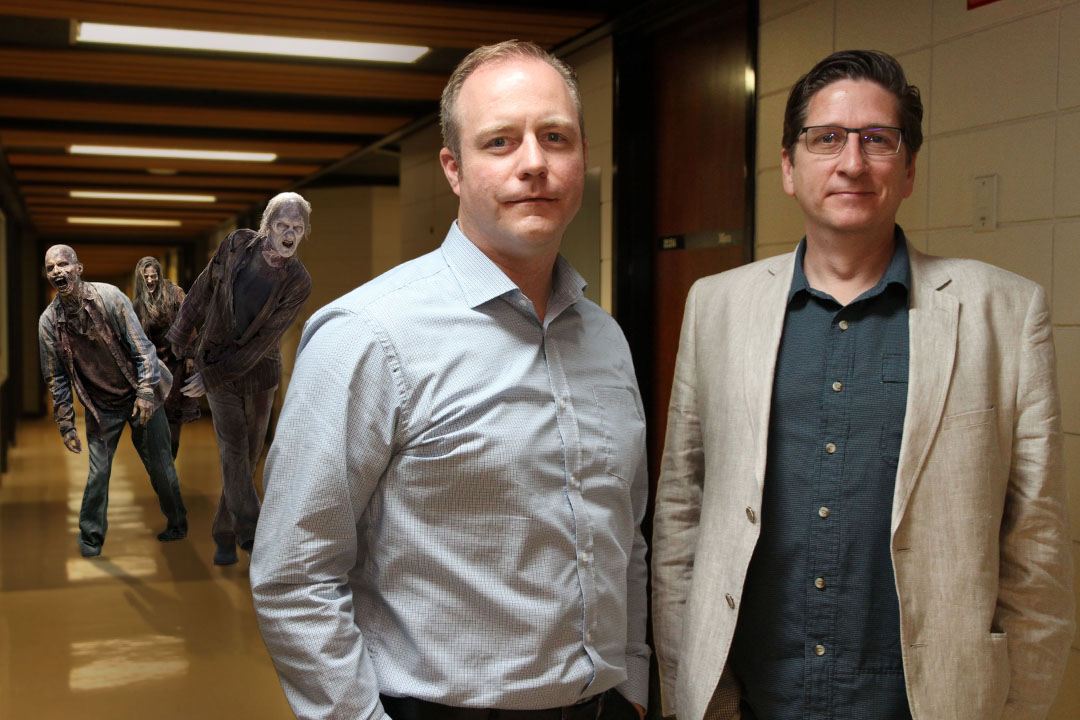
Class explores the zombie apocalypse
A class in the College of Education is using a unique methodology to examine the effects of radical change in large institutions such as schools.
By Lesley PorterEducational Administration and the Zombie Apocalypse is a graduate-level class taught by David Burgess and Paul Newton. This is the second offering of the class, which is being taught this term as well as to an undergraduate audience in January 2017.
“A lot of what we do is look at systems, organizations and institutions,” said Newton, associate professor and department head in educational administration. “The initial idea around this was trying to understand why educational systems are so resistant to significant fundamental change.”
The zombie concept, he explained, is a thought experiment exploring human behaviour, organizational theory, education reform and administrative preparedness in the context of complete system failure, such as a zombie apocalypse. By framing these subjects within the scenario of an infestation of the living dead, students can explore why educational systems struggle with large-scale change—resulting in theories that can be applied to other large organizations and institutions, such as health care.
The scenario also provides a lens to examine specific elements of organizational behaviour—such as leadership, morality, power and conflict—in the survivor group when society ultimately crumbles.
“This allows us to look at situations where things are really dysfunctional and not working,” said Burgess, the associate dean of research, graduate support and international initiatives in the college. He uses the example of sociopathic leadership as portrayed in everyone’s favourite zombie drama, The Walking Dead.
“Many of the leaders [on the show] that rotate in and out [of group leadership positions] are psychopaths or sociopaths,” explained Burgess. “So we have conversations about what [leadership] means as a moral enterprise, and both the positive and negative aspects of that.”
Newton added that the TV show is an apt comparison point because it contains a wealth of material that lasts over a long period of time, allowing for myriad of change in the dynamics of the survivor group. “You actually see things like the group in a chaotic situation. Then you move along and they find a settlement. At these different points where they find a settlement—in Alexandria, for example—you then see a re-emergence of civilized societies and institutions.”
While the class is attracting its fair share of zombiephile graduate students in the College of Education, it has also generated interest from students in the health science disciplines— likely those, explained Newton, whose job or career field involve some aspect of education, such as medical and nursing educators.
Newton added that using a pop culture phenomenon with broad appeal—such as a fictional zombie apocalypse—to teach educational theory has been successful and well-received by students, as it provides a relatable context for abstract theories.
“It’s popular, and student feedback has been very positive,” he said. “Maybe in a few years we’ll develop another class that integrates pop culture as a tool to help understand education and organizational life.”

